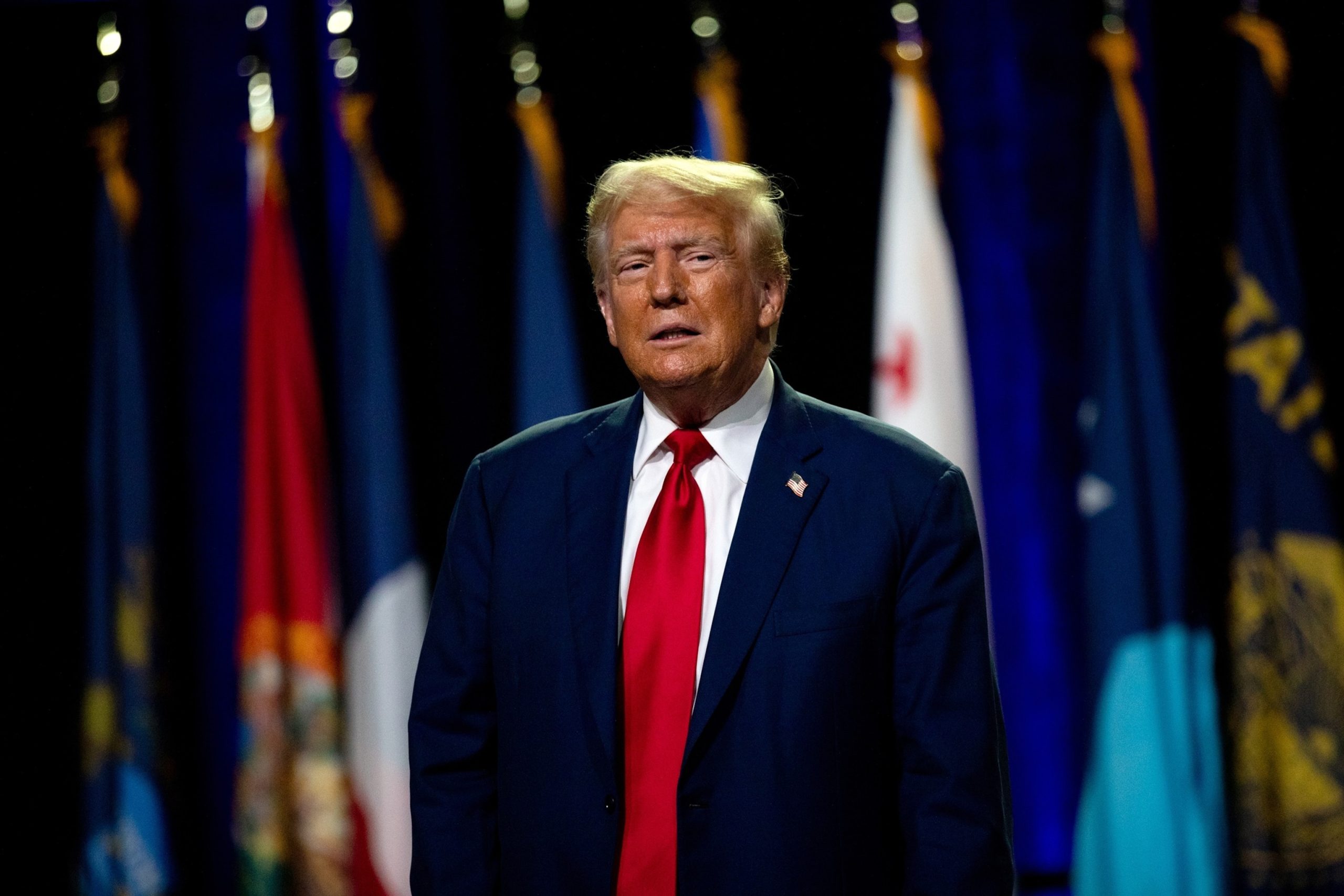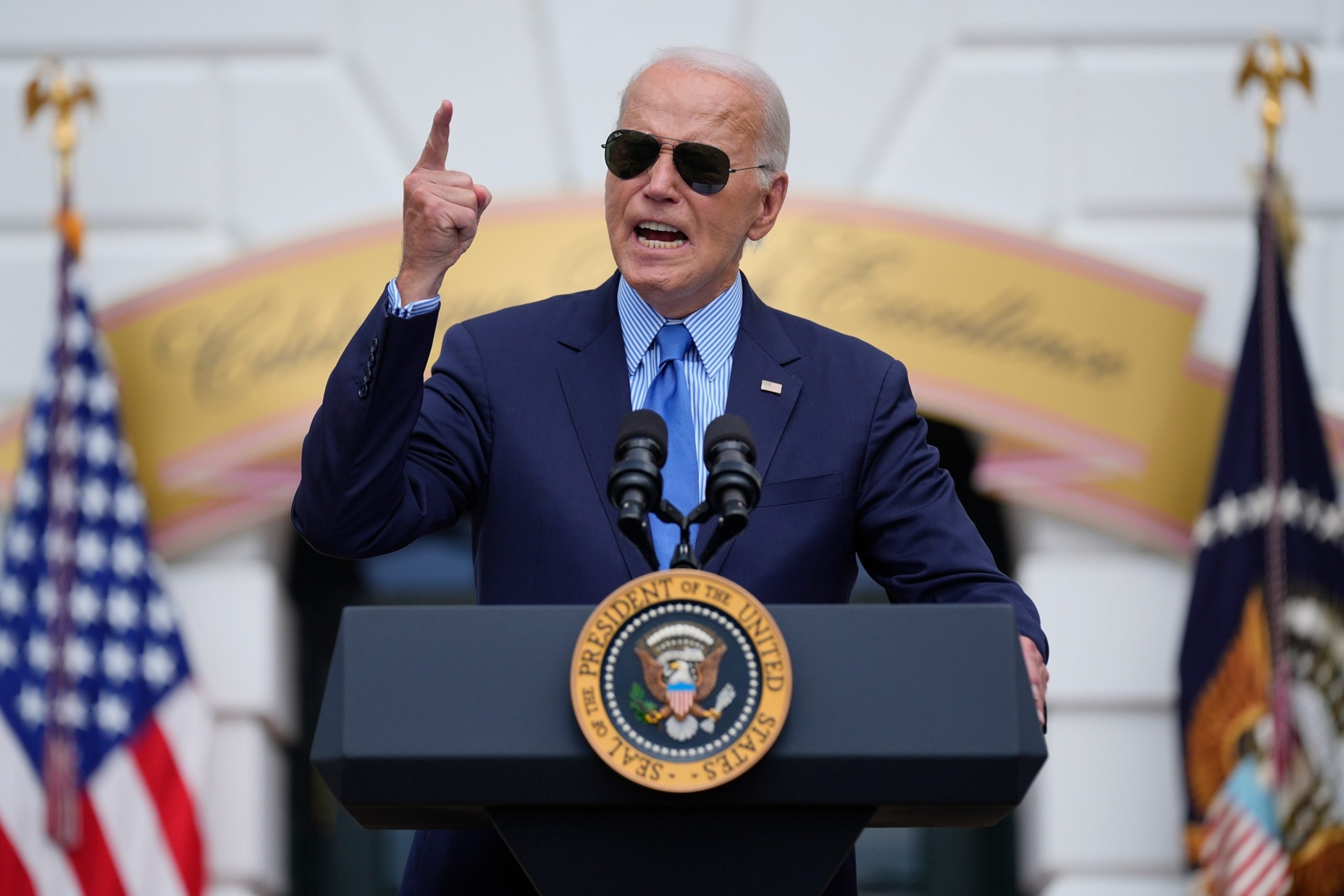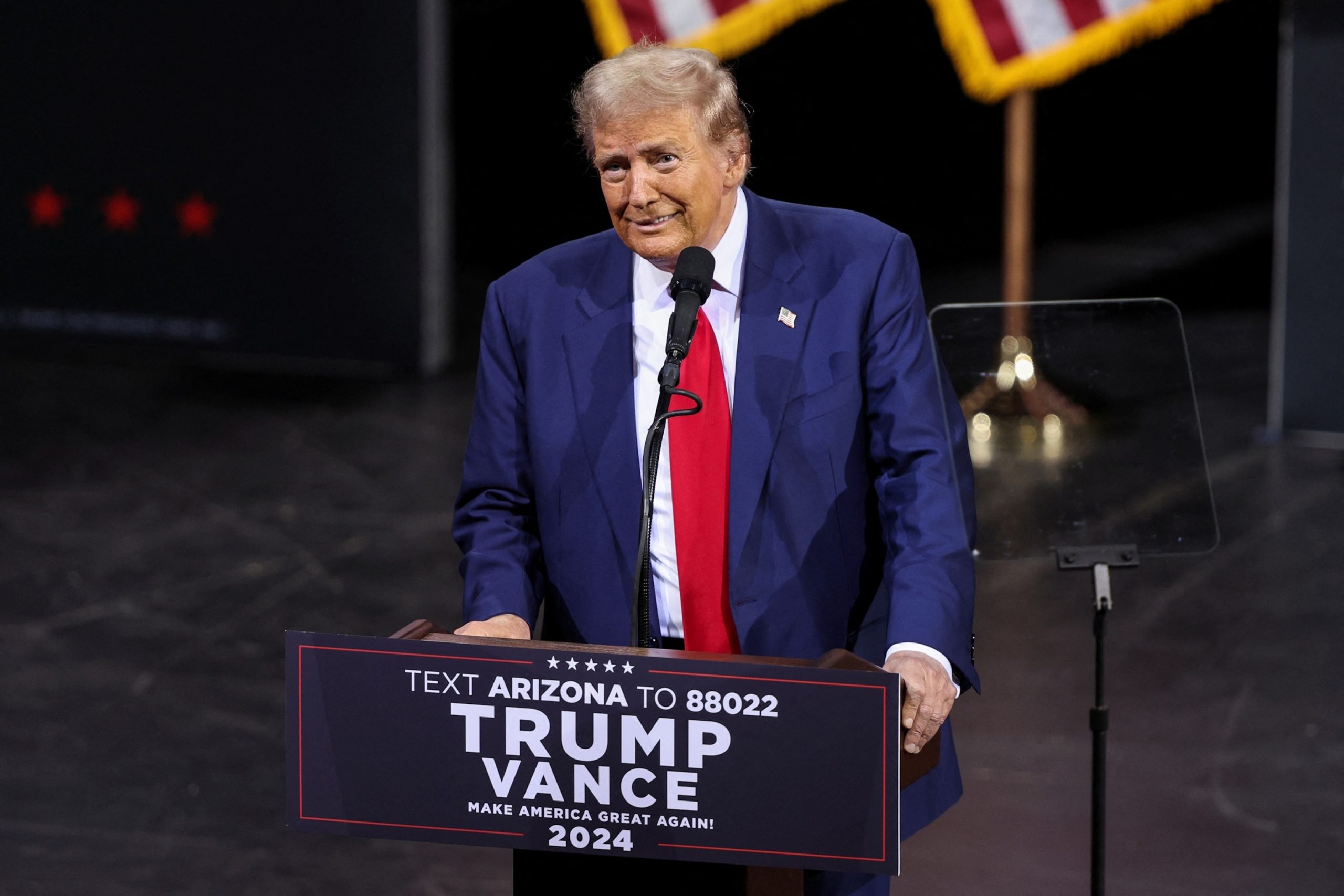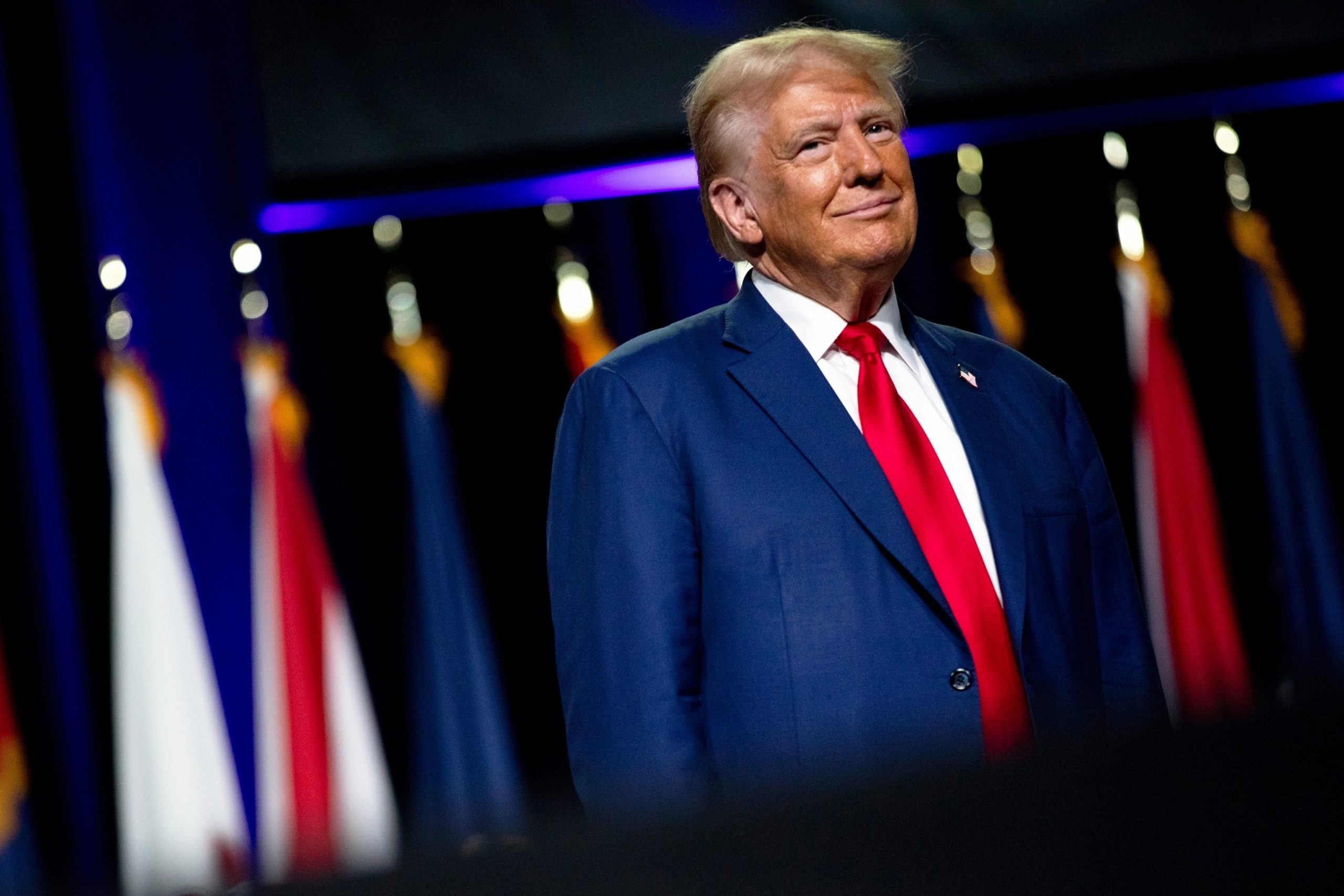Special counsel Jack Smith has charged former President Donald Trump in a superseding indictment in his federal election interference case that charges him with the same offenses in the original indictment, but is adjusted to the Supreme Court’s recent presidential immunity ruling.
“The superseding indictment, which was presented to a new grand jury that had not previously heard evidence in this case, reflects the Government’s efforts to respect and implement the Supreme Court’s holdings and remand instructions,” a Justice Department spokesperson said Tuesday.
Trump last August pleaded not guilty to federal charges of undertaking a “criminal scheme” to overturn the results of the 2020 election to remain in power. Last month, in a blockbuster decision, the U.S. Supreme Court ruled that Trump is entitled to immunity from criminal prosecution for official acts undertaken while in office, and sent the case back to the trial court to sort out which charges against him can stand.
In a separate filing Tuesday, the special counsel said he does not oppose waiving Trump’s appearance for an arraignment on the superseding indictment.
While the original indictment laid out five ways Trump allegedly obstructed the function of the federal government — having state election officials change electoral votes, arranging fraudulent slates of electors, using the Department of Justice to conduct “sham” investigations, enlisting the Vice President to obstruct the certification of the election, and exploiting the chaos of the Jan. 6 riot — the new indictment removes mention of his use of the Department of Justice, which was explicitly mentioned in the Supreme Court’s ruling as falling within his official duties.
While the original indictment mentions the Justice Department on over 30 occasions, the new indictment makes no mention of the DOJ.
It also reframes the portion of the original indictment outlining that Trump allegedly knew his claims of election fraud were false.
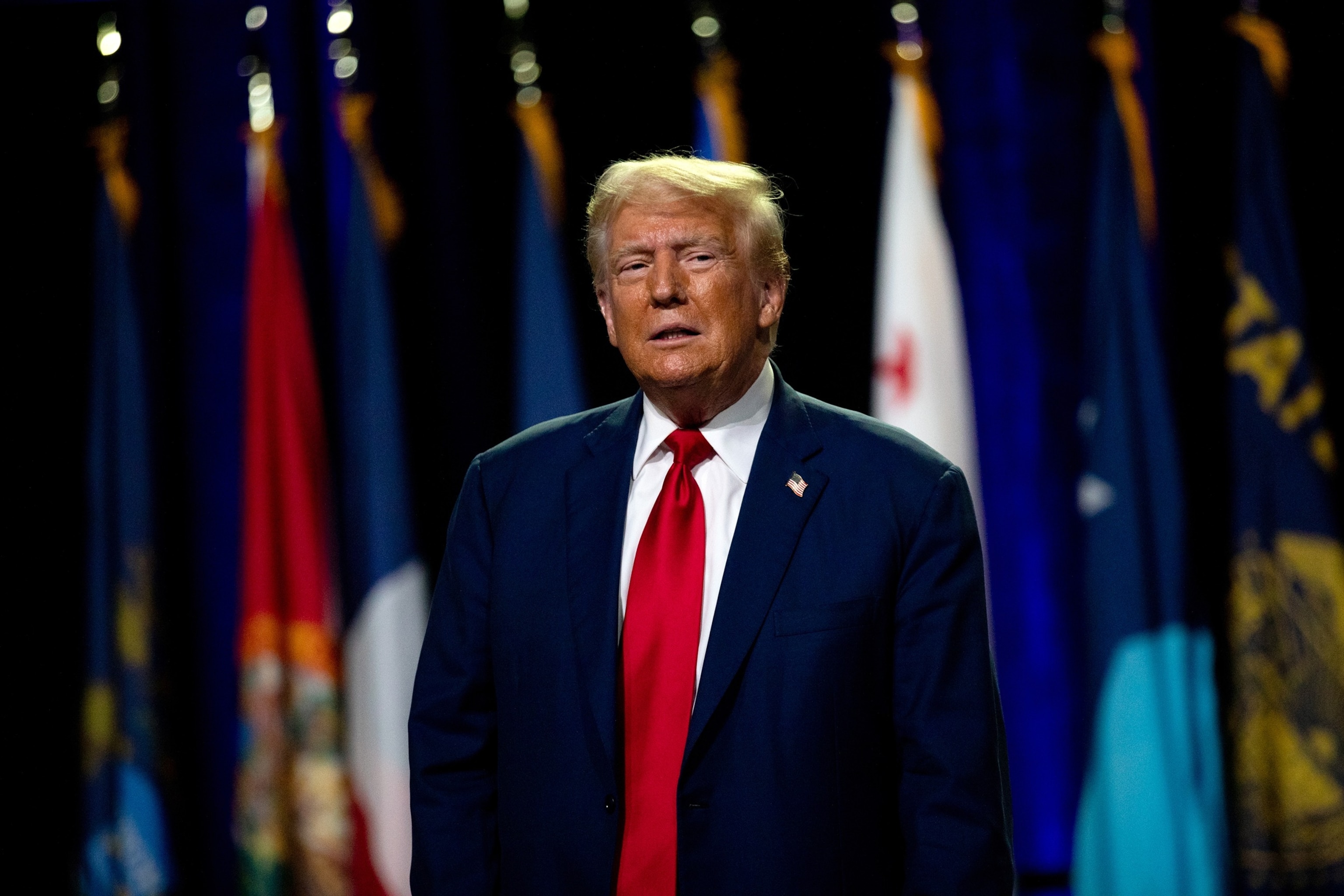
Republican presidential nominee, former President Donald Trump greets the crowd before speaking during the National Guard Association of the United States’ 146th General Conference & Exhibition, Aug. 26, 2024, in Detroit.
Emily Elconin/Getty Images
The original indictment included how multiple federal officials — including the vice president, members of the Department of Justice, the Director of National Intelligence, and several White House attorneys — notified Trump that his claims about the election were false. The superseding indictment removes most of those mentions, saying, “The Defendant was on notice that his claims were untrue. He was told so by those most invested in his re-election, including his own running mate and his campaign staff.”
“The defendant used his campaign to repeat and widely disseminate them anyway, to make his knowingly false claims appear legitimate, create an intense national atmosphere of mistrust and anger and erode public faith in the administration of the election,” says the new indictment, adding that those aiding Trump were “acting in a private capacity” and that none of them “were government officials during the conspiracies.”
In multiple places, Smith’s new indictment adds clarifying language to state when he believes Trump was clearly acting outside of his official duties, saying, for instance, that Trump “had no official responsibilities related to any state’s certification of the election results” and highlighting when Trump was allegedly acting “not as President but in his capacity as a candidate for office.”
The new indictment is 36 pages, while the original indictment was 45.
It comes just days after Smith, in a filing, urged the Eleventh Circuit Court of Appeals to reverse a federal judge’s surprise dismissal of Trump’s classified documents case, which Smith is also overseeing.
After the recent ruling by the Supreme Court of the United States (SCOTUS), former President Donald Trump is facing new charges in an election interference case. The ruling, which came down in a 6-3 decision, has opened the door for further legal action against Trump and his associates for their alleged involvement in attempting to overturn the results of the 2020 presidential election.
The case in question centers around Trump’s efforts to pressure state officials and lawmakers to overturn the results of the election in key battleground states that he lost to President Joe Biden. These efforts included filing numerous lawsuits, making false claims of widespread voter fraud, and pressuring state officials to “find” enough votes to secure his victory.
The SCOTUS ruling has been seen as a significant blow to Trump’s legal defense, as it allows for further investigation into his actions leading up to and following the election. Legal experts believe that this ruling could potentially lead to charges of obstruction of justice, abuse of power, and conspiracy to commit election fraud.
In response to the ruling, Trump has continued to deny any wrongdoing and has vowed to fight the charges in court. His legal team has argued that the allegations against him are politically motivated and an attempt to undermine his presidency.
However, many legal experts believe that the evidence against Trump is strong and that he could face serious consequences if found guilty. The SCOTUS ruling has set a precedent for holding elected officials accountable for their actions and upholding the integrity of the electoral process.
As the case moves forward, it is likely to reignite debates over the role of the judiciary in overseeing elections and holding politicians accountable for their actions. The outcome of this case could have far-reaching implications for future elections and the rule of law in the United States.
Overall, the SCOTUS ruling in the election interference case against Trump marks a significant development in the ongoing legal battles surrounding the 2020 presidential election. It remains to be seen how this case will unfold, but one thing is clear: Trump is facing a tough legal battle ahead.
